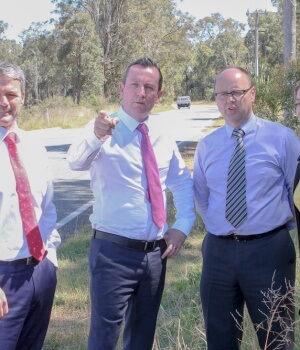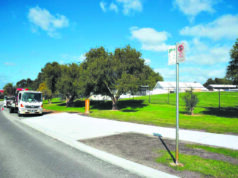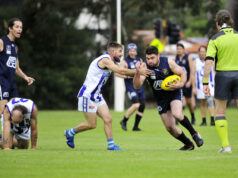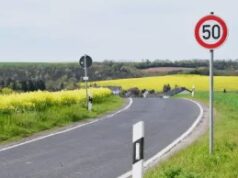
Canning’s local MPs and opposing energy spokesmen have again butted horns on the future of Western Power after the debate over its privatisation was recently reignited.
The possibility of selling the State Government owned utility was announced in the 2016-17 budget and Premier Colin Barnett is expected to announce its position in the next few weeks.
Shadow Energy Minister and Member for Cannington Bill Johnston has warned selling off Western Power would result in services going down, prices going up and jobs getting lost.
He used the sale of the State Electricity Commission of Victoria in the early 90s as an example of privatisation and deregulation going wrong.
“The experience round the world is that when these things are privatised the price of electricity for ordinary families is increased,” he said.
“The amount of profit for the retailers in Victoria has gone up by over 200 per cent since deregulation over there.
“We’ve seen in Victoria where there has been major problems with the maintenance of the network.
“The Royal Commission into the Black Saturday bushfires shows it was lack of maintenance for the poles and wires in victoria that led to the deaths of over 100 people.”
He said if the State Government were to sell the utility it would lose more than $500million in dividends and other payments it makes to the State Government per year and questioned the sale as a debt reduction effort.
“They have no plan to keep debt down and even if they sell Western Power debt will continue to go up and in 10 years time when the debt’s even higher there will be nothing more to sell,” he said.
“Anybody can sell their house to pay off their mortgage but that doesn’t mean you’ve got somewhere to live.
“Denying future generations ownership of Western Power is no a solution.”
Energy Minister, Treasurer and Member for Riverton Mike Nahan criticised Mr Johnston’s comments and said they were still investigating sale options.
“Any proposal to sell these assets will only occur if we can be assured that the outcome is in the best interests of both WA taxpayers and electricity consumers and will not in any way compromise the safety and reliability of the network,” he said.
“Western Power has been a drain on WA taxpayers with a net cost of $4.2 billion since disaggregation (2006-07 to 2015-16).
“And that drain on taxpayers is forecast to grow to $4.8 billion by 2019-20.
“If we do proceed with the sale of Western Power, it would remove about $8 billion in debt from the State’s balance sheet and enable the State Government to fund the future infrastructure needs.”
He said all the evidence pointed to privatised energy networks having greater success in keeping electricity costs as low as possible and the industry was regulated so network charges would be controlled.
“Western Power is a regulated monopoly, meaning those network charges will continue to be independently set by the regulator,” he said.
“So Labor’s claims that electricity bills will increase as a result of a sale are false, baseless and nothing more than scaremongering.”
Dr Nahan said safety would not be compromised because there were legislative to be adhered to.
Freight rail privatisation criticised
Transport Minister Bill Marmion has defended the privatisation of the state’s freight rail network in 2000.
Opposition leader Mark McGowan visited Karragullen on October 27 to speak about the dangers of privatisation in an effort to keep Western Power in public hands.
In 2000 the Liberal Party supported the sale of the Westrail freight including rolling stock, depots and terminals across regional WA for $585million.
The sale proceeds were used towards retiring Westrail debt, which was more than $700million.
The then Transport Minister Murray Criddle said privatisation would ‘introduce innovation and operating efficiencies’ and the private operator would put ‘downward pressure on freight rates and improve service delivery.’
Mr McGowan said this was a mistake, which led to the closure of some regional rail lines and an increase in rail track access costs.
He said the increased costs made it more cost effective for the grain harvest to be transported to port by trucks instead of rail.
“This is what happens when you privatise – the new owners’ priority is to maximise profits for their shareholders,” he said.
“Colin Barnett and the Liberals clearly haven’t learnt from their past mistakes.
The privatisation of Westrail Freight has been a disaster for regional communities and has led to more trucks on our roads.”
Mr Marmion disputed the comments and said since privatisation, Brookfield Rail had invested more than $2 billion in enhancing the freight rail network.
“This has led to efficiency and capacity improvements, which have been in the interests of Brookfield Rail and various freight rail operators, it has also been good for farmers and other indirect beneficiaries that rely on the network to transport their commodities,” he said.
“This has also led to significant monetary or revenue benefits to the State due to royalties that are paid on the export of these commodities and the increased volumes that are catered for on this enhanced network.
Without privatisation, over $2billion in costs would otherwise be borne by the taxpayers of WA and the state would have received significantly less royalty revenue over the years since privatisation.
This is money that could be spent on essential infrastructure such as hospitals, schools etc.”













